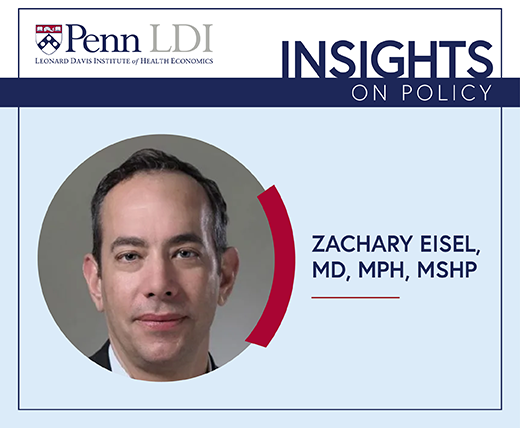Alexandra Casison, MPH is a first-year PhD student in Demography, and is pursuing a dual MA in Statistics and Data Science at Wharton. She is also an NIH/NICHD T32 trainee. Her previous research has focused on LGBTQIA+ migrant and refugee health challenges at the U.S.-Mexico border, PrEP uptake among trans women in Manila, Philippines, racial health disparities and self-rated health in the U.S., and common breast cancer myths and misconceptions among Andean women in Cusco, Peru. As a mixed-methods researcher, Casison is interested in the health outcomes of historically marginalized communities and seeks out interventions that will improve these outcomes. She holds an MPH in Global Health from the Rollins School of Public Health at Emory University and a joint BS in Global Health and Human Biology from the University of California, San Diego.

Associate Fellow
Alexandra Casison, MPH
- PhD Student, Demography, School of Arts and Sciences
- MA Student, Statistics and Data Science, Wharton School
Related Content

Over 500 U.S. Hospitals Have Stopped Delivering Babies Since 2010
A Crisis in Maternal Care is Unfolding—and it’s Hitting Rural and Urban Communities Alike

Pennsylvania’s Big Plan to Save Rural Hospitals Gets Mixed Reviews
Stable Payments Improved Margins But Not Liquidity, New LDI Analysis Finds

Penn Nursing’s Jane Muir Wins 2025 Emergency Nurses Association Award
LDI Senior Fellow Cited for "Significant Contributions" in Research

HIV is Not a Crime: The Case for Ending HIV Criminalization
Outdated Laws Target Black and Queer Lives in Over 30 States, Fueling a Deadly Disease

LDI and Wharton’s Cynthia Chude Wins 2025 MiFF PhD Scholar Award
Selected for Current and Future Research in the Science of Amputee Care
In The Media The Guardian
Patients with Ultra-Rare Diseases Worry FDA Approach Will Leave Them Without Treatment
Interview
In The Media ABC News
Why Some Economists Say the Deficit Increase in Trump’s Bill is Dangerous
Interview

Estimated Overdose Deaths Due to the One Big Beautiful Bill Act
Research Memo: Delivered to House Speaker Mike Johnson and Majority Leader John Thune

Health Impacts of SNAP Provisions in the One Big Beautiful Bill Act
Research Memo: Delivered to House Speaker Mike Johnson and Majority Leader John Thune

Fixing The Bill: How Better Medicare Cost Reporting Can Slash U.S. Health Care Waste
Hospitals’ Current Cost Reports are Unreliable and Should be Improved, LDI Fellow Finds

How Medicaid Cuts Could Force Millions Into Nursing Homes
If Federal Support Falls, States May Slash Home- and Community-Based Services — Pushing Vulnerable Americans Into Nursing Homes They Don’t Want or Need
In The Media STAT News
Medicaid Cuts Will Hurt All American Children — Not Just Those Publicly Insured
Author